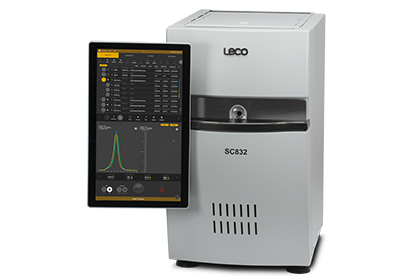At the heart of LECO is the desire to empower results in labs around the world. The boom of the battery industry drove us to find solutions for labs working with batteries and battery materials. We know that accurate and precise results are key to quality control and assurance, and that efficiency is essential. That’s why we believe our Carbon and Sulfur determinators should be an integral part of battery labs across the globe. But first, let’s explore why Carbon and Sulfur testing is so important in the first place.

The Importance of Carbon Determination
Lithium-Iron Phosphate (LFP) batteries have become a popular choice for energy storage and electric vehicle batteries for a number of reasons, including cost-effectiveness, safety, and lack of negative environmental impact. However, there are still a few drawbacks to using these batteries. Their performance can be limited by inadequate Li-ion diffusion and low electron conduction. Carbon, however, can help to stabilize the battery and increase electrochemical efficiency and performance rate.
Carbon is a highly favorable addition to battery materials due to its electrical conductivity, high heat resistance, variable structures and dimensions, availability, and affordability. However, ensuring the right amount of Carbon has been added is crucial to seeing the most benefits. Too much Carbon has the potential to impede Li-ion transport.
Testing Carbon levels can reveal important information about your battery and its performance, ensuring that you get the most out of your batteries.
The Importance of Sulfur Determination
In most cases, Sulfur is seen as a contaminant when it comes to LFP batteries. Many raw or recycled battery materials are refined using Sulfuric acid, which can introduce unwanted Sulfur with the potential to cause problems with electrochemical performance or conductivity.

However, in some cases, Sulfur can actually improve the performance of the battery. Sulfur doping causes the expansion of LiFePO4 lattice, resulting in the battery having a high capacity at a high charging/discharging rate.
Whether you are looking to keep Sulfur out of your battery or add it in, determining Sulfur is an important step to monitoring your battery’s performance.
Determining Carbon and Sulfur with LECO Products
LECO’s combustion analyzers, such as the induction-based furnace CS744 and CS844, and the resistance-based furnace SC832, are designed for precise Carbon and Sulfur determination in battery materials. With results in as little as 60-180 seconds, our analyzers are perfect for high throughput and efficiency-focused labs. Minimal sample preparation is required, meaning sample prep time, efforts, and chances of contamination are reduced. And lastly, LECO delivers the accurate results you need to have confidence in the quality of your battery materials. Explore our application notes on battery analysis for real data produced by our instruments.
Further Explore this Topic with Us
Are you interested in learning more about Carbon and Sulfur determination in batteries and battery materials? If so, join in on our upcoming webinar series! We have three webinars that will be presented over the next few months pertaining to battery analysis. The first one takes place on 24 April, 2025 and covers different combustion techniques for analysis of battery materials as well as Carbon and Sulfur determination in LiFePO4/Li-NMC. You can register for this webinar by clicking the button below!







